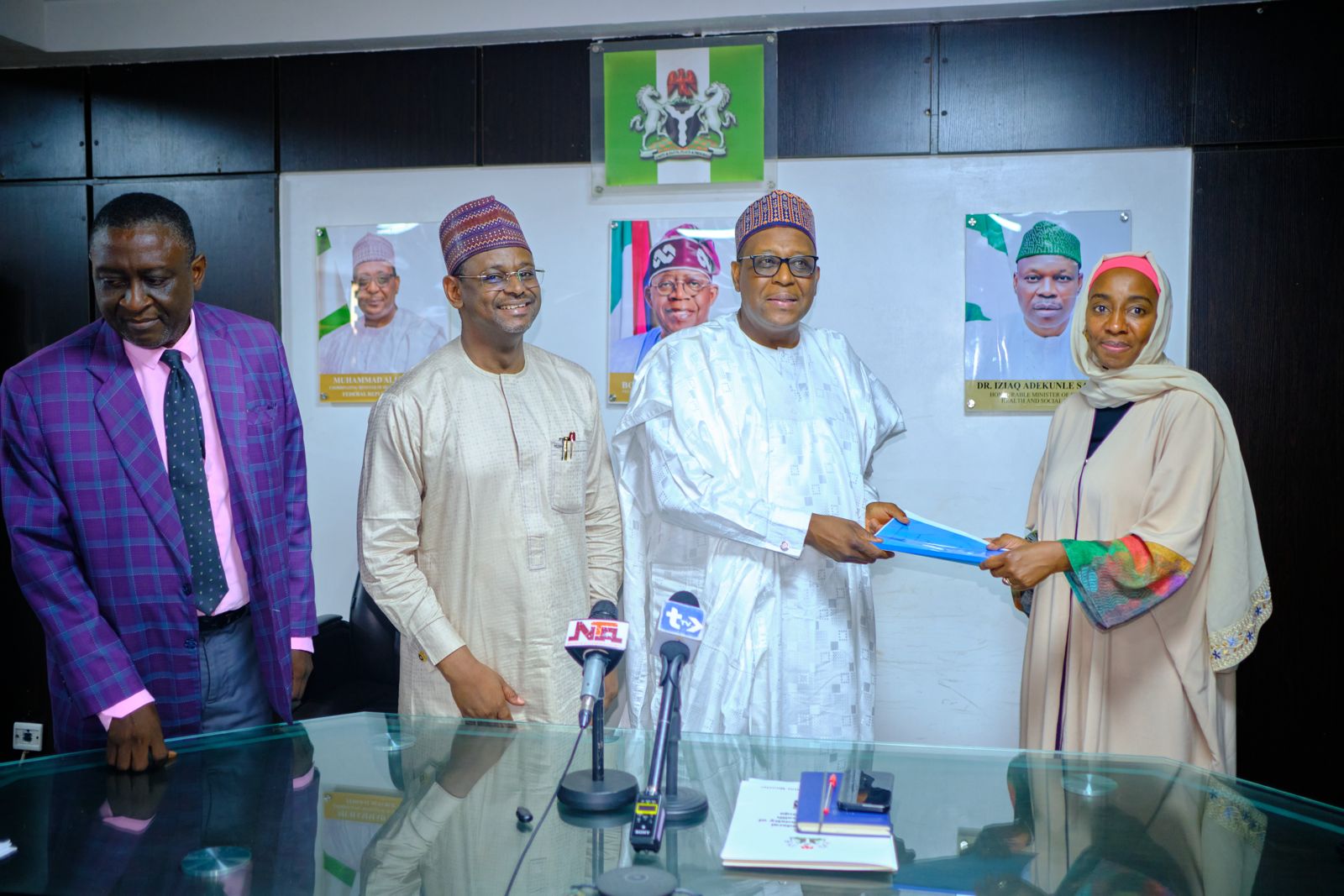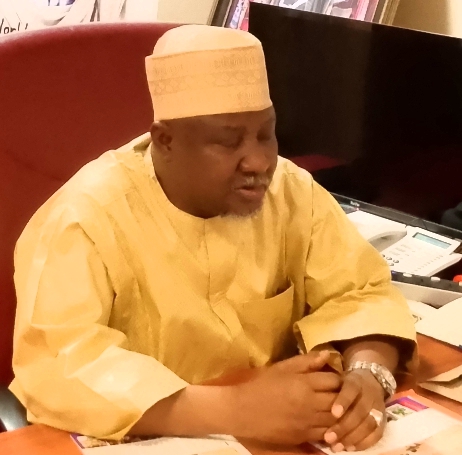Health
WHO Disqualifies Nigeria, eight others from global Vaccine bid as Moeti said WHO could not risk the Pfizer vaccines being wasted

The World Health Organisation-led COVAX global initiative has failed to shortlist Nigeria for the Pfizer vaccines following its inability to meet the standard requirement of storing the vaccines at the required -70 degrees Celsius.


The Nigerian government had stated that it was expected to receive 100,000 doses through the COVAX initiative, which was set up to ensure rapid and equitable access to COVID-19 vaccines for all countries, regardless of income level.


Speaking at a virtual press conference which Saturday PUNCH attended, however, the Director, WHO, African Region, Dr Matshidiso Moeti, said only four African countries were shortlisted for the Pfizer vaccine out of the 13 that applied.
Moeti said WHO could not risk the Pfizer vaccines being wasted.
She said, “Around 320,000 doses of the Pfizer-BioNTech vaccine have been allocated to four African countries – Cape Verde, Rwanda, South Africa and Tunisia. This vaccine has received WHO Emergency Use Listing but requires countries to store and distribute doses at minus 70 degrees Celsius.
“To access an initial limited Pfizer vaccine volume, countries were invited to submit proposals. Thirteen African countries submitted proposals and were evaluated by a multi-agency committee based on current mortality rates, new cases and trends, and the capacity to handle the vaccine’s ultra-cold chain needs.
“This announcement allows countries to fine-tune their planning for COVID-19 immunisation campaigns. We urge African nations to ramp up readiness and finalise their national vaccine deployment plans. Regulatory processes, cold chain systems and distribution plans need to be in place to ensure vaccines are safely expedited from entry ports to delivery. We can’t afford to waste a single dose.”
The Director-General of the Nigerian Institute of Medical Research, Prof Babatunde Salako, had told this newspaper that there was not enough space at the moment to store the Pfizer vaccines at that temperature.
But the Executive Director of the National Primary Health Care Development Agency, Dr Faisal Shuaib, had described the report as fake, saying Nigeria could store the vaccines and had taken journalists on a tour of its facility in Abuja.
Saturday PUNCH reports that Nigeria was expected to be on the list of African countries to receive the first set of Pfizer vaccines because of its infection rate, which is now the sixth-highest on the continent.
Only South Africa, Morocco, Tunisia, Egypt and Ethiopia have higher infection rates than Nigeria. But Morocco and Egypt have already independently obtained vaccines and begun distribution. In contrast, South Africa, which has the highest burden of the disease in Africa, has already procured one million doses of the Oxford-AstraZeneca vaccine, produced in India but has yet to begin distribution.
However, Nigeria has received no COVID-19 vaccine even as its rate of infection has continued to surge.
Unlike the other vaccines on the market, the BioNTech/Pfizer vaccine, which has the highest WHO rating, is expected to be stored at 70 degrees Celsius which Nigeria could not meet.
However, the WHO regional director said countries that failed to make the Pfizer list could get the Oxford-AstraZeneca vaccine later in the month, although the health organisation has not yet endorsed it.
This newspaper learnt that the Oxford-AstraZeneca vaccine does not need to be stored in a cold facility.
Moeti said, “Nearly 90 million of the Oxford/AstraZeneca vaccine could start arriving on the continent later this month. This is subject to the WHO listing the vaccine for emergency use. The review is ongoing and its outcome is expected very soon.”
The WHO director said it was time for African countries to up their game in vaccines’ rollout.
She said the initial phase of 90 million doses of COVID-19 vaccines would support countries to immunise three per cent of the African population most in need of protection, including health workers and other vulnerable groups in the first half of 2021.
“As production capacity increases and more vaccines become available, the aim is to vaccinate at least 20 per cent of Africans by providing up to 600 million doses by the end of 2021,” Moeti said.
To complement COVAX efforts, the African Union has secured 670 million vaccine doses for the continent, distributed in 2021 and 2022 as countries secure adequate financing. The African Export-Import Bank will facilitate payments by providing advance procurement commitment guarantees of up to $2bn to the manufacturers on behalf of countries.
Since the AU will distribute vaccines based on population, Nigeria is expected to receive the highest shipment. However, no date has been announced for the distribution.

Health
National hospital, private institutions sign MoU to strengthen healthcare workforce

The Federal Government has facilitated the signing of a Memorandum of Understanding (MoU) between the National Hospital and four private institutions to enhance the capacity of the healthcare workforce.

The participating institutions include Nile University, Cosmopolitan University, Yangongwo College of Nursing Sciences, and Concerned Medix Foundation.

This was disclosed in a statement signed by the Ministry’s Deputy Director of Information and Public Relations, Mr. Alaba Balogun on Friday.
Alaba revealed that during the signing ceremony, the Coordinating Minister of Health & Social Welfare, Prof. Muhammad Ali Pate, emphasized that the MoU aligns with the administration’s policy to expand training capacities.
Prof. Pate further highlighted that this initiative reflects President Bola Ahmed Tinubu’s commitment to increasing the training of health workers, addressing workforce gaps, and maintaining professional standards through the Regulatory and Professional Schools Division of the Hospital Services Department of the Ministry.
He stressed the government’s responsibility to tackle multiple challenges, including infrastructure, equipment, and human capital development, noting that Nigerian health workers are highly sought after due to their excellent training.
“Thankfully, because they are well-trained, we are very proud of them. If we weren’t training them, they wouldn’t have been attractive to other countries.
“Unfortunately, that has implications on the service delivery at home. So as a government, we took a progressive stance to say, look, let’s train more.
“So that even if those who are trained leave, some will stay. And even those who have gone away might come back to serve. And, that is the driving force behind this policy approval by President Bola Ahmed Tinubu,” the Coordinating Minister pointed out.
Prof. Pate also underscored the crucial role of the private sector in achieving the government’s objectives, noting that Nigeria’s healthcare system operates as a mix of public and private institutions.
“So, the private sector has a space, and I am very pleased that you have joined hands with the National Hospital to be able to really see how the capabilities of the hospital can help you train more clinicians”, he said.
Speaking at the event, the Chief Medical Director of the National Hospital, Prof. Raji Mahmud, commended President Bola Ahmed Tinubu for prioritizing improvements in the healthcare system.
He affirmed that the collaboration and signing of the MoU between the National Hospital and private institutions would significantly expand healthcare workforce training.
Prof. Mahmud further noted that three out of the four institutions are primarily training centers focused on medical and nursing education in partnership with the National Hospital, Abuja.

Health
President Tinubu appoints Chief Medical Directors for medical centres across the country

In a bid to enhance medical care for Nigerians, President Bola Ahmed Tinubu has appointed six new Chief Medical Directors (CMDs) for Federal Hospitals across the country.

Among those appointed is Dr. Ikrama Hassan, who will now serve as the Chief Medical Director of the Federal Teaching Hospital, Lafia, Nasarawa State. Dr. Hassan, a seasoned consultant physician, previously served as the Medical Director of Dalhatu Araf Specialist Hospital before its elevation to a teaching hospital.

The full list of newly appointed CMDs includes:
Prof. Olusegun Sylvester Ojo – Federal Teaching Hospital, Akure, Ondo State.
Prof. Yusuf Mohammed Abdullahi (Reappointed) – Federal Teaching Hospital, Gombe.
Dr. Dauda Abubakar Katagum – Federal Teaching Hospital, Azare, Bauchi State.
Dr. Ikrama Hassan – Federal Teaching Hospital, Lafia, Nasarawa State.
Dr. Ali Mohammed Ramat – National Orthopedic Hospital, Maiduguri, Borno State.
Dr. Haruna Abubakar Shehu – Federal Medical Centre, Kafanchan, Kaduna State.
Each appointment is for a four-year term, effective from the date of assumption of duty.
President Tinubu congratulated the appointees, urging them to uphold the highest standards of professionalism and service delivery. He reaffirmed his administration’s commitment to improving medical infrastructure and ensuring quality healthcare access for all Nigerians.

Health
Kebbi Senator calls for establishment of Federal Medical Centre in Zuru, Kebbi State

Senator representing Kebbi South Senatorial District, Garba Maidoki has called for the establishment of a Federal Medical Centre to be situated in Zuru to cater for the health needs of the District and its environs.

The lawmaker in the 10th National Assembly made the call during a public hearing on the Bill to establish Federal Medical Centre in Zuru organized by the Senate Committee on Health.

In a memorandum presented at the hearing by the lawmaker, he explained that the aim is to provide tertiary healthcare facilities to the people of Zuru in Kebbi State in the North West Nigeria.
He further noted that the establishment of FMCs across the country was initiated by Decree No. 10 of 1985, with the aim of providing tertiary healthcare services.
According to him, the FMC Birnin Kebbi was established on June 6, 2000, and has since been upgraded to a University Teaching Hospital.
The lawmaker stated that the large population and the challenges faced in accessing healthcare services, necessitates the establishment of FMC in the state.
“In Birnin Kebbi, the state capital, the distance between Zuru Emirate and Birnin Kebbi is approximately 240 km, making it difficult for patients, especially children and pregnant women, to access secondary and tertiary healthcare facilities”, he lamented.
Senator Maidoki charged his colleagues and the Federal Ministry of Health and Social Welfare to support the bill, saying healthcare is a fundamental privilege expected from any government.
The lawmaker who is the sponsor of the bill told journalists during a chat that the Federal Medical Center, when established will not only cater for the tertiary healthcare needs of Kebbi State, but will also serve the adjoining states like Niger and Zamfara.

-

 Security6 days ago
Security6 days agoNew Commissioner of Police in Niger, Elleman sends strong warning to criminals
-

 News5 days ago
News5 days agoAbia: LG Chairman, Iheke accused of using soldiers to detain IRS agent, claims Governor Otti’s support
-

 News6 days ago
News6 days agoKogi Governor, Ahmed Usman Ododo salutes Tinubu at 74
-

 News4 days ago
News4 days agoKogi government bans rallies ahead of Natasha’s homecoming slated for Tuesday
-

 News6 days ago
News6 days agoPlateau LP stakeholders endorses Barr Gyang Zi’s defection to APC
-

 News6 days ago
News6 days agoAkpabio pays historic visit to office of SA to President on Senate Matters
-

 News4 days ago
News4 days agoIran may secure a deal before Trump’s deadline – or face Israeli strikes in Tehran – analysis
-

 Business6 days ago
Business6 days agoFCT Minister reveals how he would aggressively pursue revenue collection, tours infrastructure





















